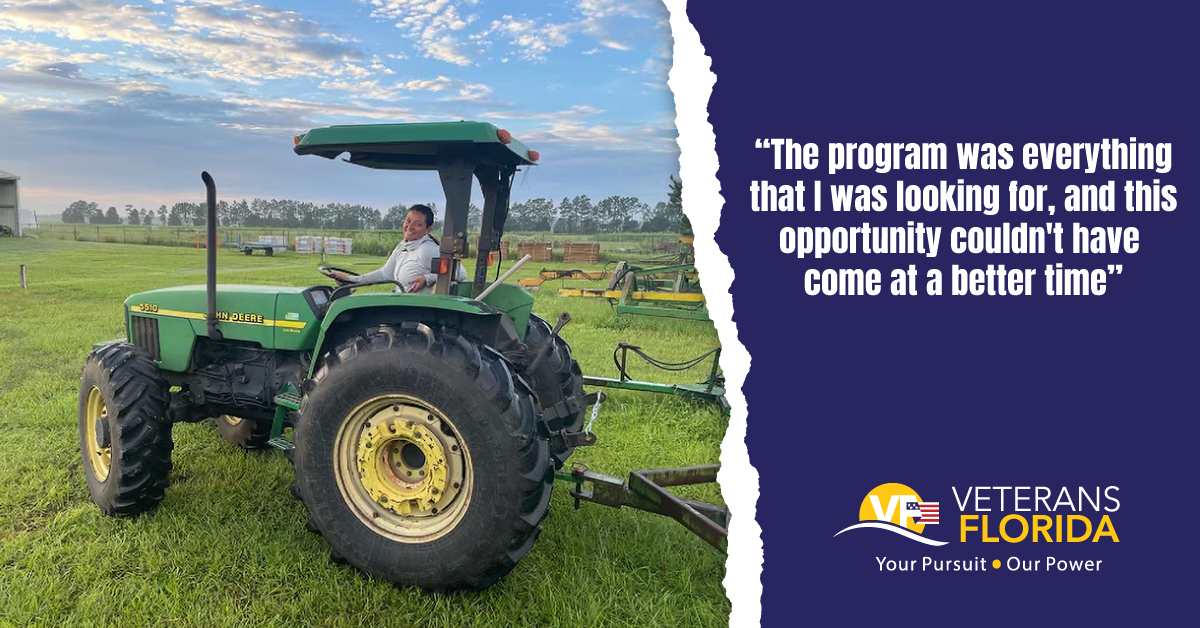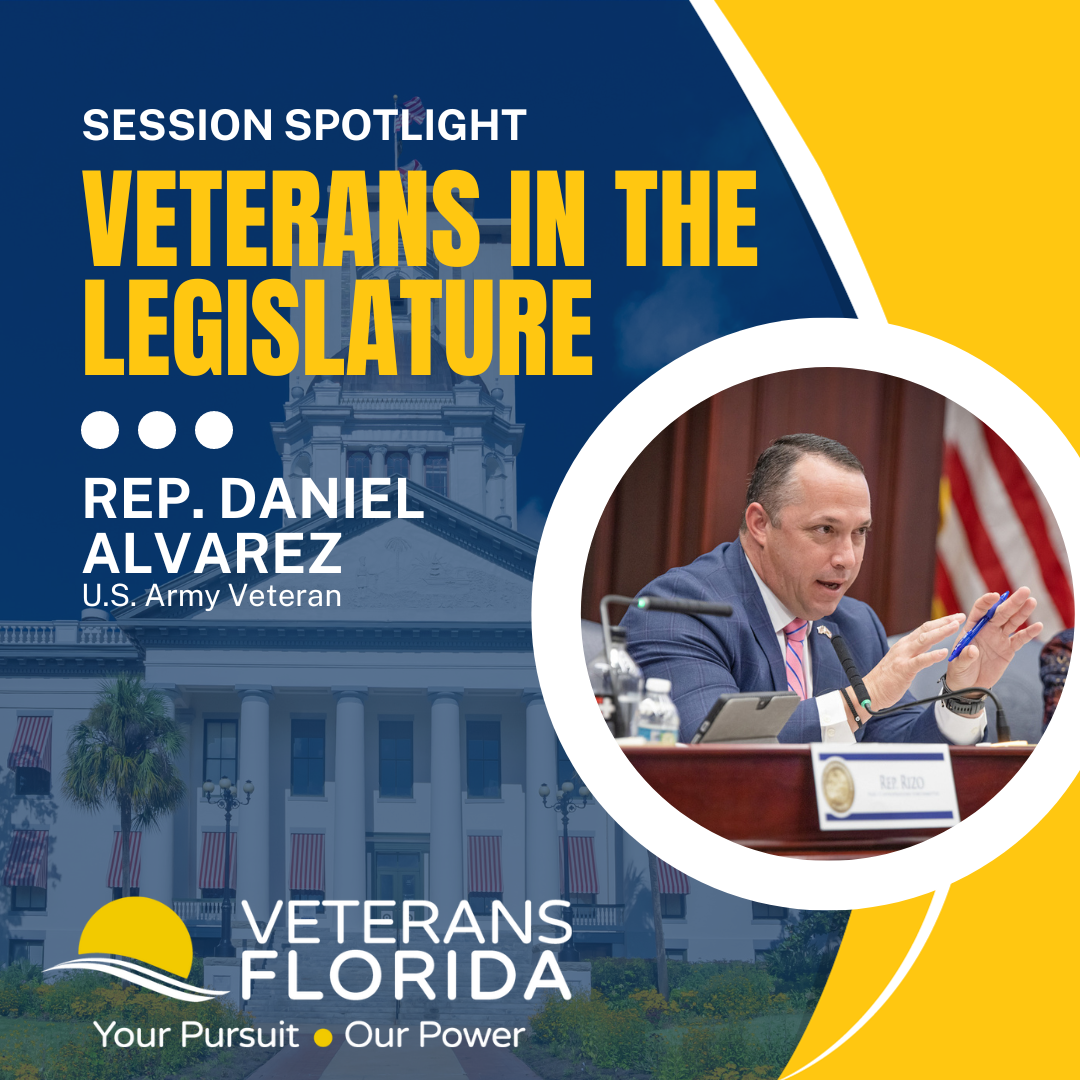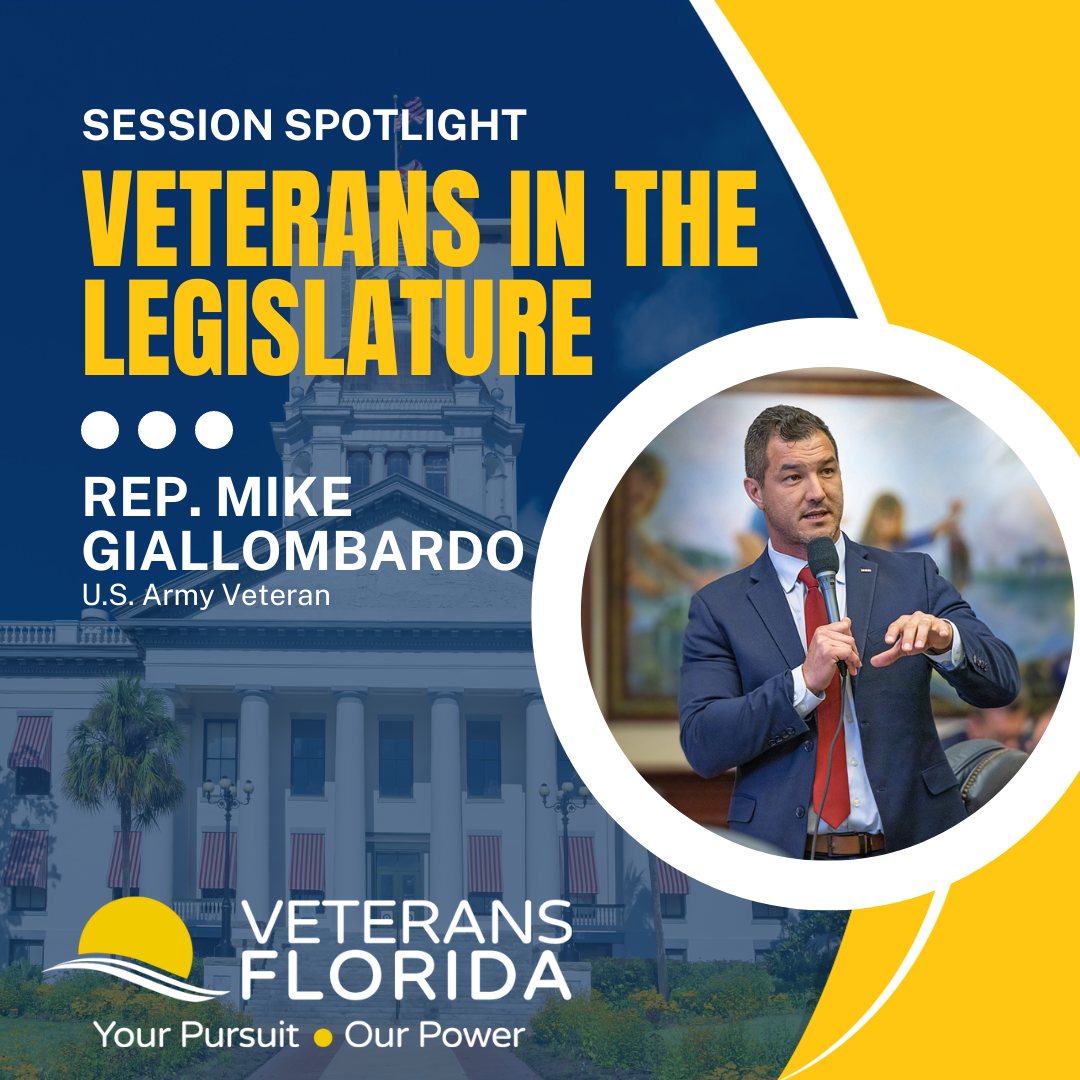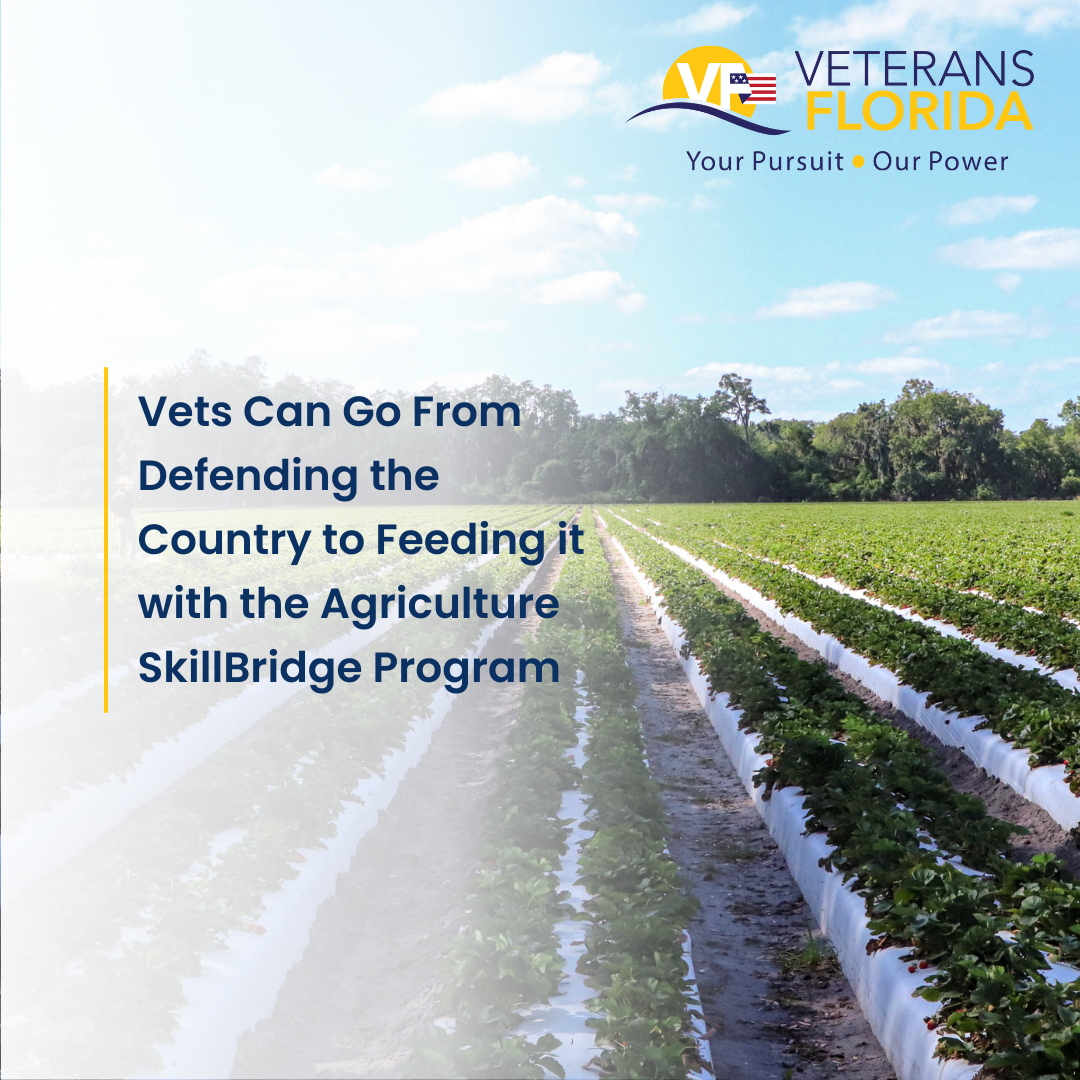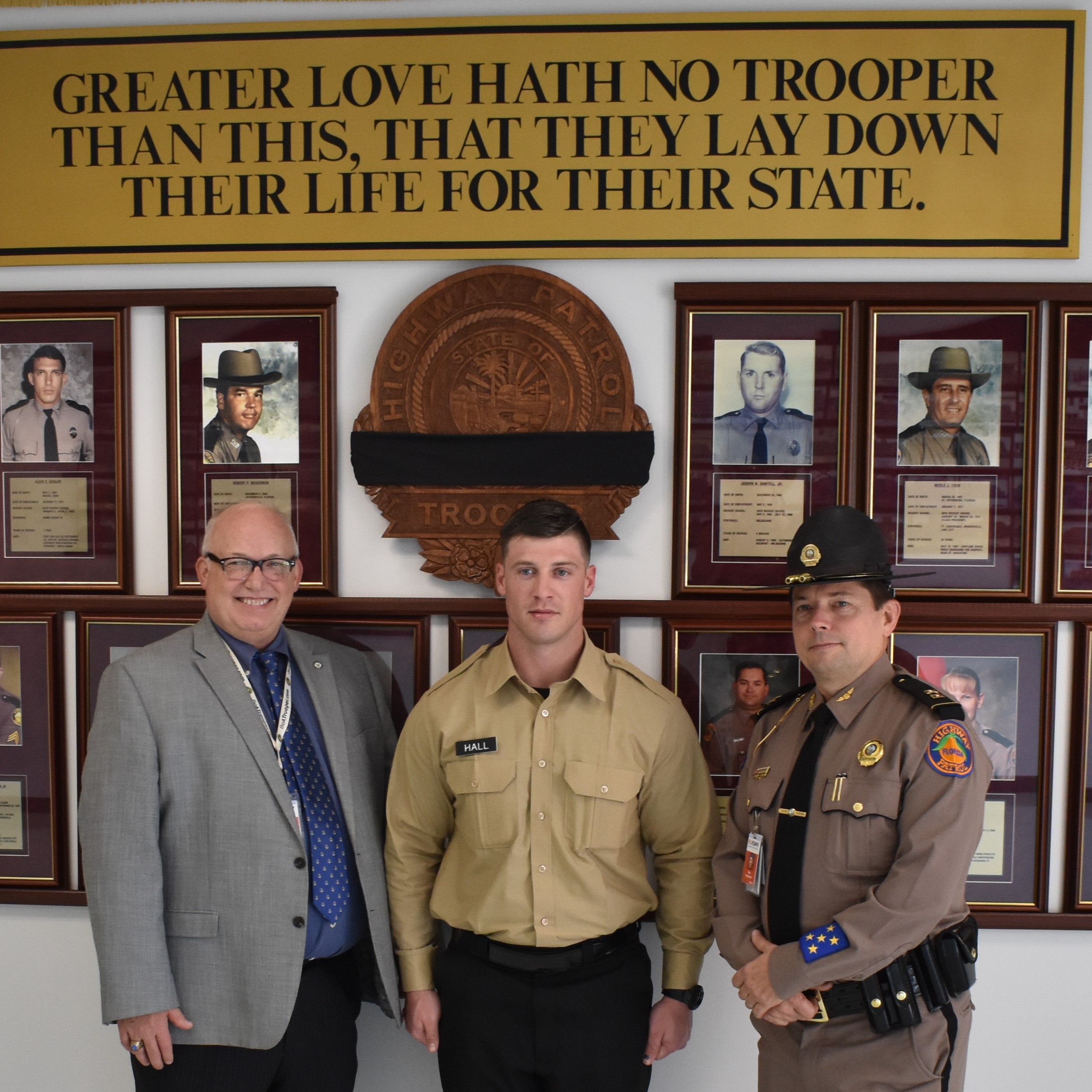Former U.S. Army Specialist Samantha Basford needed a fresh start and returned to Florida to enroll in the Veterans Florida Agriculture Program to join the next generation of agriculture leaders and find solutions to some of the industry’s toughest challenges.
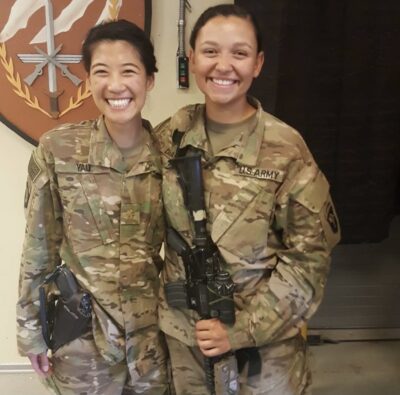
Major Amy Yau (left) and Specialist Samantha Basford (right).
Raised in a military family, Basford joined the Army out of Florida at 17-years-old and served for four years stationed at Fort Campbell, Kentucky, which included a tour in Afghanistan as a combat medic before transitioning out of the military to focus on school.
While studying social work at the University of Memphis and searching for a proactive approach to helping people, Basford first contemplated a future in agriculture after learning about Memphis’ “food desert,” which the United States Department of Agriculture defines as urban or rural areas “with limited access to affordable and nutritious food, particularly such an area composed of predominantly lower-income neighborhoods and communities.”
“I’ve seen different parts of the country and realized it’s a very common problem to not have access to healthy food or to be dependent on fast food or convenience stores,” Basford said. “It definitely threw up a red flag for me, and I started looking for ways to link social work to agriculture since I saw it as an area that could use a lot of improvement.”
Without any prior agriculture training and a “green thumb that isn’t so green,” Basford said she “needed some type of education and hands-on experience” and began exploring veteran programs that could open doors for her in the industry.
“Instead of taking a few steps back, the program gave me a head start and got me right in the middle of where I wanted — and fast at that.”
Through a Google search, she found an article detailing the benefits of the Veterans Florida Agriculture Program — a six-month paid fellowship offering veterans the opportunity to gain first-hand agriculture experience and work alongside researchers at the University of Florida Institute of Food and Agricultural Sciences (UF/IFAS).
Living in Michigan at the time, our Veterans Employment and Training Services (VETS) team walked her through the process, and after getting accepted into the program, Basford relocated to Sarasota to start her fellowship on September 3 at the UF/IFAS Gulf Coast Research and Education Center in Wimauma.
“The program was everything that I was looking for, and this opportunity couldn’t have come at a better time,” Basford said, recalling how she favored getting out in the field rather than study agriculture in a classroom from a distance over several years. “Instead of taking a few steps back, the program gave me a head start and got me right in the middle of where I wanted — and fast at that.”
Basford joined the farm team on her first rotation and learned how to operate a tractor with a roller attached to the back, which is used to flatten land after it’s been tilled to make planting seeds, controlling weeds, and harvesting crops much easier.
“Growing up as a military brat, I moved around a lot and never really questioned where my food comes from or how it gets on my plate.”
She recently started horticulture, the practice of garden cultivation and management, where she’s currently working on a project that involves collecting samples of potatoes and tomatoes to test different levels of fertilizer and phosphorus.
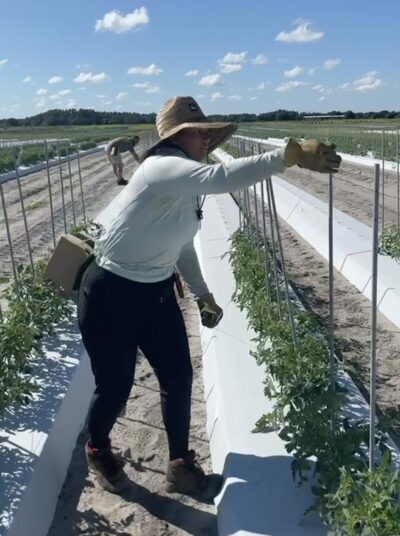
Samantha tying tomato plants during her horticulture lab.
In the coming months, Basford will study plant pathology to determine how pathogens and environmental conditions cause diseases in plants and wants to learn about fighting invasive species of plants in weed science and growing strawberries in her last open rotations.
One of Basford’s biggest takeaways from her time in the program is how the experience gave her a new perspective on how much work goes into running a farm, ensuring crops make it to harvest, and getting fruits and vegetables into a store or market.
“Growing up as a military brat, I moved around a lot and never really questioned where my food comes from or how it gets on my plate,” she said. “I only thought harvest time involved a lot of labor, but it’s a year-round job. You’re always juggling a new crop.”
Simon Bollin, Agribusiness Development Manager for the Hillsborough County Economic Development, helped develop the framework for the Veterans Florida Agriculture Program in 2018 to ensure veterans received a wide range of skills to be competitive in any position within the agriculture industry. Offering veterans the opportunity to gain agriculture experience in areas such as sales, logistics, research, and technology is what Bollin believes sets Florida apart from other states.
“I looked at other veteran agriculture programs around the country and their main goal was to get veterans into the production side of agriculture, which is great, but if a veteran has no land or equipment, they’re at a significant disadvantage,” Bollin said. “The Agriculture Program was designed to give veterans a well-rounded experience in agriculture and provide them the resources and opportunities to be more successful in the industry.”
Alongside her training in the fellowship, Basford is growing her professional network with past program participants currently working at UF/IFAS, allowing her to acquire additional resources and connect with like-minded people. Veterans Florida will assist Basford with career matching or help start a business through the Entrepreneurship Program once she completes her fellowship in mid-March.
Basford said she believes improving different aspects of agriculture starts at the local level and wants to explore community gardening and urban farming in the short term before applying a holistic approach to a large-scale operation.
“My long-term goal would be to have my own homestead that I use for educating the community on where their food comes from and how to grow their own,” Basford said, adding that her permaculture farm will give people a chance to “enjoy a slice of nature.”
And for veterans considering a future in agriculture, Basford strongly recommends the program and thanked the Veterans Florida team for helping her through every step of the process while ensuring she never had too much on her plate.
“Don’t let fear of change or the unknown stop you from trying something new,” she said. “From the time I talked to Kolby and Amy to the interview, [Veterans Florida] has answered all of my questions about the Agriculture Program and were more than willing to meet my timeline.”
Basford added: “It shows that you guys are not just about filling a slot; it’s about getting the veteran to where they want to go, helping them transition, and finding a new career path.”

